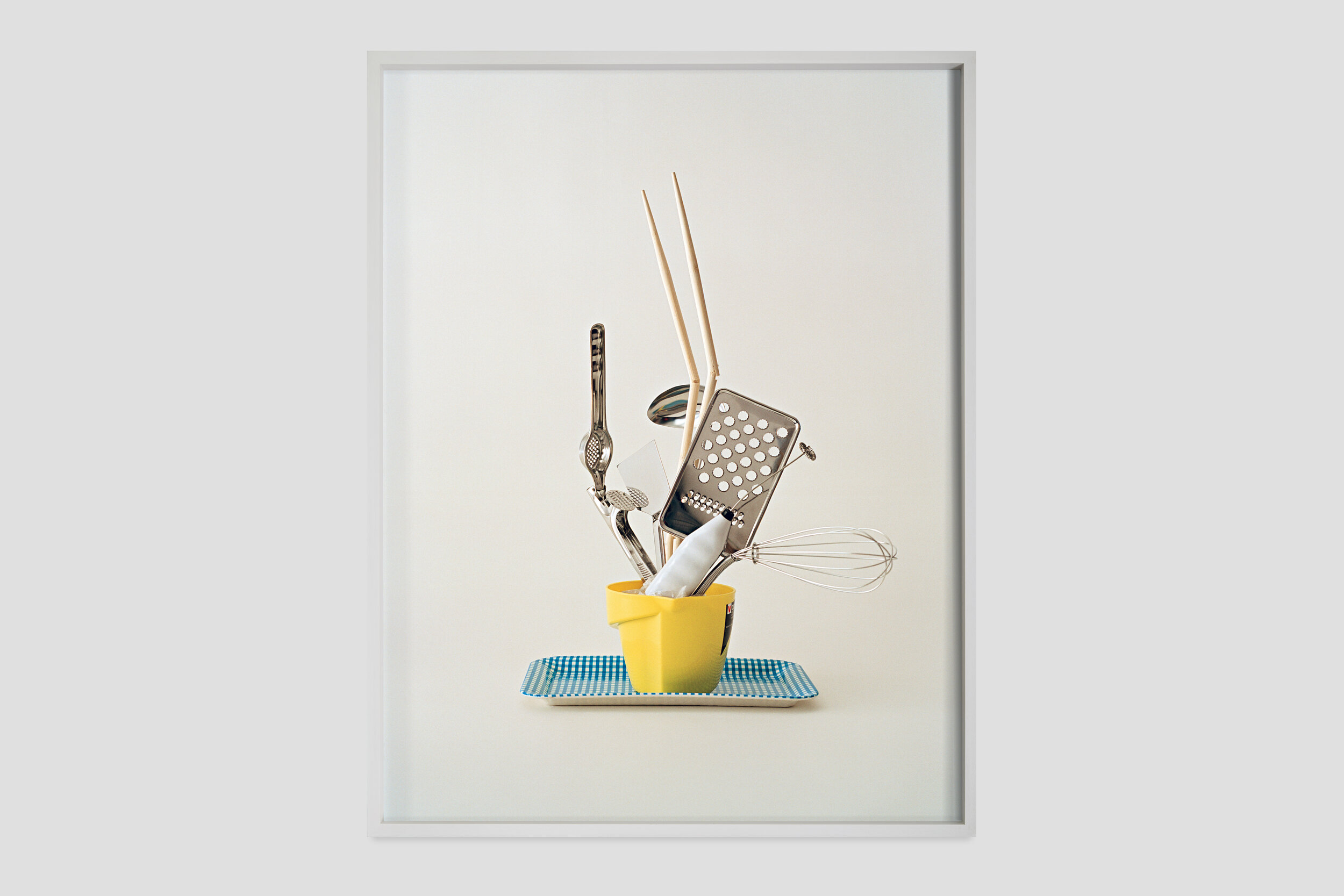“Ike-100-Yen-Shop” – More love for cheap products
I use the traditional Japanese flower arrangement art of Ikebana* (“flower path”) as an appreciation strategy. Ikebana describes the way of the heart: from oneself to the flower. In my case: from cheap objects (100 Yen = approx. 1 Euro) and then back to myself. We are all strong consumers who practice Ikebana while "shopping". If we take our heart “path” seriously, we must ask ourselves under which conditions and with how much wasted resources our everyday products are manufactured, as well as how to appreciate and consume them responsibly.
As a consumer artist, my work is about making us aware of what we are doing when we shop, so that we are not helplessly at the mercy of manipulation.
Stephanie Senge, Berlin 2021
Stephanie Senge sees Ikebana as an appreciation strategy:
We need to practice Ikebana while shopping. Flowers are already valued enough in our society, so I use only products from Japanese "100 yen” stores for my own style of Ikebana. More love for cheap products!
Ikebana means "arranging flowers" or "making flowers alive" and is the Japanese art of flower arrangement. It is one of the three classical Japanese arts of refinement and reached its first zenith in the 16th century under the influence of Buddhist tea masters. Originally, the arrangements were used when floral offerings were made at altars but later to adorne the tokonoma (alcove) of a traditional Japanese home.
Munich-born artist Stephanie Senge (class of Olaf Metzel, Academy of Fine Arts, Munich) describes herself as a consumer artist. For her, consciously confronting consumption is the first step towards free will and the freedom to choose. By collecting consumer goods and placing them in a new context, she realigns the observer’s gaze on the most mundane of everyday products. Her work comprises installations, photographs, paintings and performance art – for example, the demo “Konsumprozession” (consumer procession) which she initiated in Barcelona. Stephanie Senge maintains a critical eye and yet succeeds in showing a special appreciation for consumer goods and everyday products in a way that is both sensitive and simultaneously humorous; referenced by and refering back to its environment.
Stephanie Senge © Sebastian Heck
Stephanie Senge is represented by ato, a young art platform for artists and curators.
text: Hannah Klein, translation: Tom Lord






